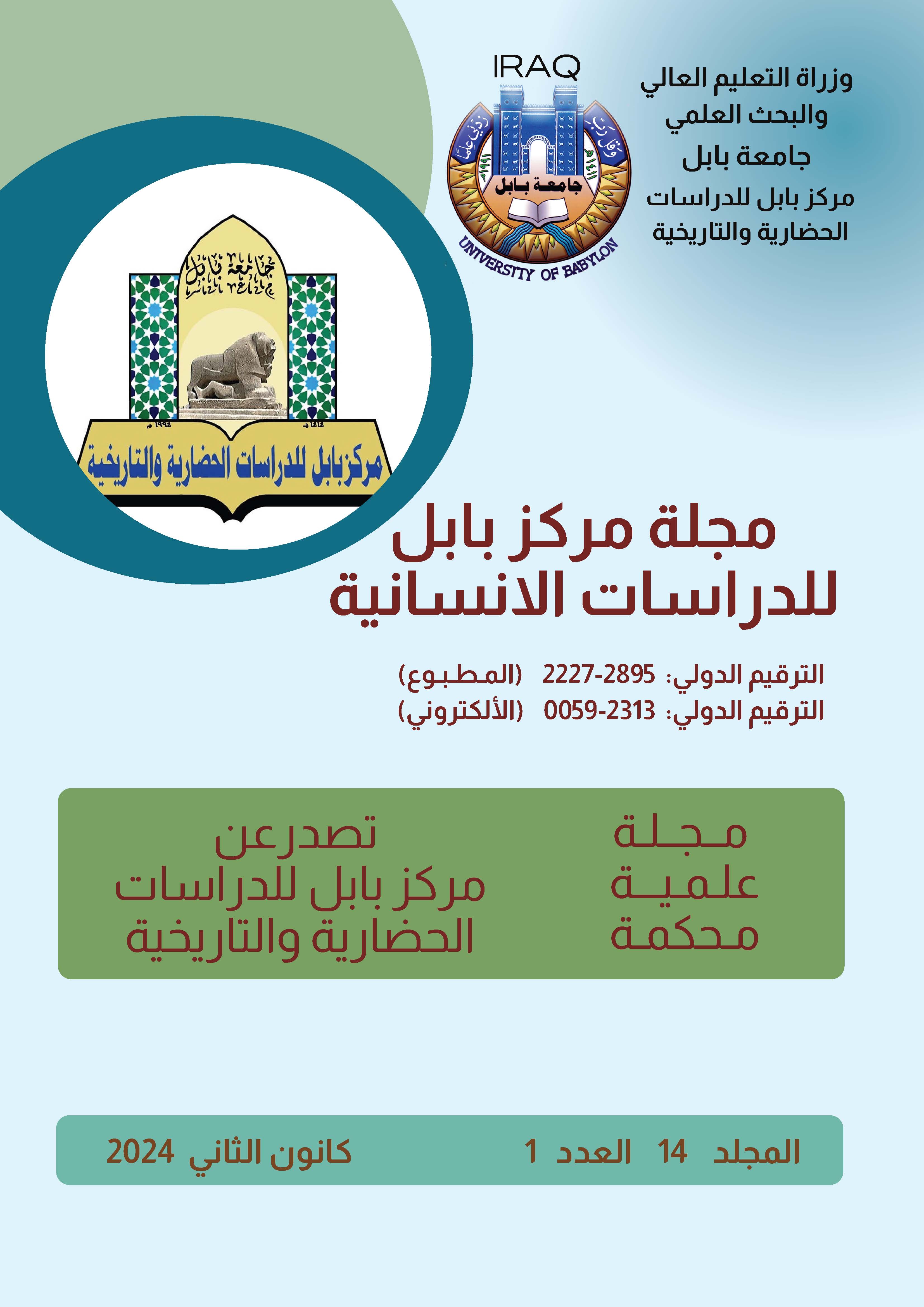ضوابط الدلالة في النقد العربي القديم الجرجاني نموذجًا
الكلمات المفتاحية:
ضوابط الدلالة _ المبدع _ المتلقي _ النقد العربيالملخص
إن أهم ما استدعاني لاختيار وكتابة البحث هو الرد على المناهج الغربية المنتشرة بكثرة التي أعلنت جهاراً موت المبدع، فذهب بعضها إلى فهم النص من خلال النص نفسه كالبنيوية والشكلانية وغيرها، ومنهم من أعطى القارئ الحرية المطلقة لفهم النص دون ضوابط تضبطه ففهم النص كما يشتهي ويحب أن يفهمه لا كما يجب أن يفهم، وبعضهم الآخر كالتفكيكية أهملت المبدع والرسالة وعينت المتلقي حكما لا لأن يثبت معنى ما، بل لإثبات أنّ كل ما أثبته لا حقيقة له ولا وجود له فسرعان ما يتحول الدال إلى مدلول وهكذا دواليك.
فحاول البحث إثبات ثلاثة أصول بإمكانها أن تضبط الدلالة التي قصد الشاعر إليها بالتحديد وبالتالي تتأطر القراءة وتصبح في إطار يسير المتلقي ضمنها لا يزيغ عنها وهي:
- ضابط في المبدع .
- ضابط في الرسالة.
- ضابط في المتلقي .
وهذا يقودنا إلى أسئلة مهمة منها:
هل ينجز المعنى في النصوص الشعرية؟
وكيف ينجز؟ أيوجد إمكانية لضبط القراءة؟ أم أن الباب مفتوح على مصراعيه؟ سيجيب البحث عن هذه الأسئلة إن شاء الله







